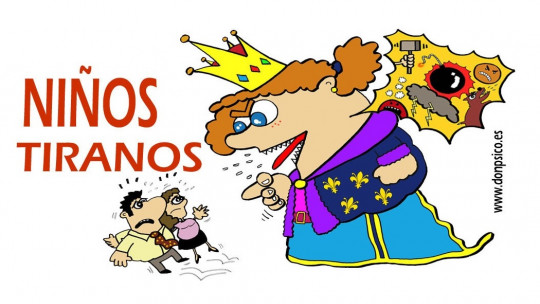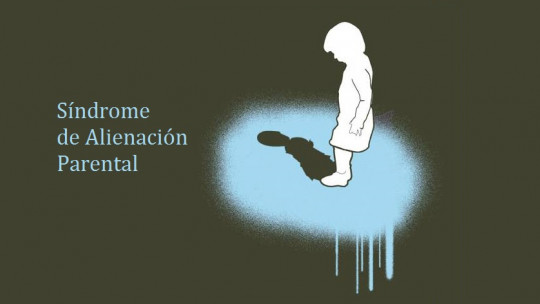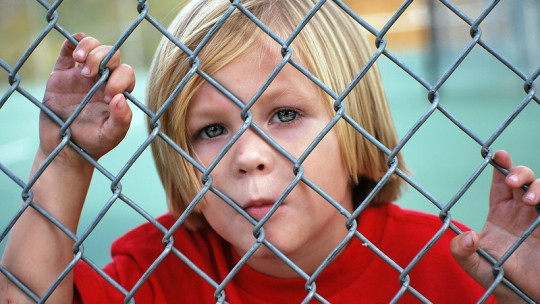Changes in the sociocultural and work environment in recent decades have been paving the way for the emergence of some dysfunctional behaviors in children.
One of the sets of attitudes and behaviors that most worry parents is that of the child who becomes the undisputed master of the family subjecting the other members of the family to their demands and whims.
Do you know the Emperor’s syndrome’?
Educational psychologists have already called Emperor Syndrome to the ’emperor children’, who choose what food to cook, where the family will travel to spend the holidays, the television channel to watch at home, the times to go to sleep or to do different activities, etc.
In professional contexts, Emperor Syndrome is called Oppositional Defiant Disorder (ODD).
To achieve their goals, they shout, threaten and physically and psychologically attack their parents. It could be said that his level of maturation in the field of empathy (that ability to put yourself in the other person’s shoes) is underdeveloped. For this reason it seems that they are not able to experience feelings such as love, guilt, forgiveness or compassion.
Entering the mind of the authoritarian child
This phenomenon has been called ‘Emperor Syndrome’, since emperor children establish behavioral and interpersonal patterns to privilege your whims and demands above the authority of their parents or guardians. Whoever does not comply with the child’s imperatives is the victim of scandalous tantrums and even attacks.
The violence that children exert towards their parents, learning to psychologically control them, results in getting them to obey and comply with their wishes. This characteristic in the personality of children has also received the name “dictator children”, due to the incontestable dominance they exercise within the family.
Symptoms
Emperor children are easily distinguishable: they usually show personality traits typical of egocentrism and have a meager frustration tolerance : They cannot conceive that their demands are not met. These traits do not go unnoticed in the family environment, much less in the school environment, where their demands may be less satisfied.
They are children who have not learned to self-control or regulate their own feelings and emotions. They have the expertise to know the weaknesses of their parents, whom they end up manipulating based on threats, attacks and fickle arguments.
Causes
Although some research has tried to elucidate the genetic causes of this syndrome, the truth is that there is a great consensus among the scientific community that Emperor Syndrome has genetic causes. psychosocial origin In this way, the decisive influence of the change in the work and social model is pointed out, a factor that affects the quantity and quality of time that parents can dedicate to their children.
Many educational psychologists and psychopedagogues have emphasized that one of the parenting factors that can lead to the child acquiring behavioral patterns of Emperor Syndrome is the parents’ limited time for educate and establish standards and limits to its offspring. Economic needs and the unstable labor market do not offer guardians the time and space necessary for parenting, causing a guilt-inducing educational style, and being prone to pampering and overprotecting their children.
A lack of emotional family habits , neglecting the need to play and interact with children. Socially, one of the problems that serves as a breeding ground for egocentric behavior infantile is the ultra-permissive attitude of adults towards children.
Differentiating between Authority and Authoritarianism
The educational style prevailing decades ago was based on authoritarianism : parents who shouted, who issued orders and who exercised punitive control over their children’s behavior. In a way, out of fear of falling back into that style that many suffered firsthand, the current educational style has veered towards the opposite extreme: ultrapermissiveness .
That is why it is important to remember that authority is not the same as authoritarianism: parents must exercise a controlled and intelligent degree of authority, in a healthy way and adapted to the educational and evolutionary needs of each child.
The culture of anything goes: the ethics of hedonism and consumerism
When we talk about education and educational styles for our children, it is necessary to remember the crucial influence of moral values of society as a whole, since this superstructural form of shared ethics will encourage certain vices and/or virtues in the child’s attitude.
The consumer culture Today it champions hedonism and the need for leisure and promptness as inalienable values. This collides with any type of internal or external imposition of responsibility on one’s own actions and with the culture of effort. If these values are not well managed and redirected, the child mistakenly learns that their right to have a good time or to do as they please can take precedence over the right of others to be respected, and they lose the notion that rewards require a previous effort.
Family and school education
Doubtful parents who exert a passive and lax education they neglect to establish frames of reference for their children’s behavior, always allowing them to reply, giving in to their blackmail and even being victims of verbal and physical attacks.
The educational system is also saturated. While parents have already given up all their authority, teachers find themselves in the position of setting limits for children who have been educated to disobey them and challenge them in pursuit of their demands. It is sometimes the case that teachers who try to establish rules receive disapproval and complaints from parents, who do not allow anyone to exercise any authority over their children. This reinforces and consolidates the child emperor in his attitude.
The boy emperor in adolescence
In the stage of adolescence, emperor children have consolidated their behavioral and moral guidelines , being unable to conceive of any type of external authority that imposes certain limits on them. In the most serious cases, they can even attack their parents, a complaint widely reported in police stations and increasingly frequent. In fact, it is the mothers who bear the brunt, who suffer, comparatively, a greater proportion of aggression and humiliation by their children.
Building good education from childhood
Psychology, psychopedagogy and mental health professionals agree that it is essential to lay solid foundations in the education of children. To educate future healthy, free and responsible children, adolescents and adults, it is necessary not to give up set clear boundaries , allowing children to experience a certain degree of frustration so that they can understand that the world does not revolve around their ego, and to gradually instill in them the culture of effort and respect for other people. Only then will they be able to tolerate frustration, commit to their objectives and strive to achieve their goals, becoming aware of the value of things.
For more information on practical tips to avoid having an emperor child, we recently published this article:
A psychologist tells us about Emperor Syndrome
Vicente Garrido prisologist and criminologist at the University of Valencia, offers us his professional vision on child tyrants in a complete interview in EiTB.









